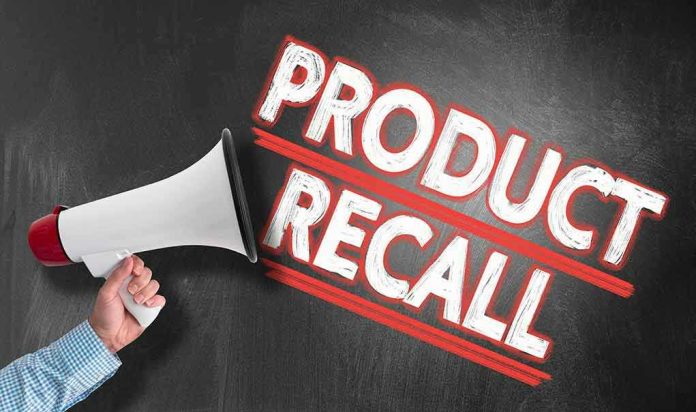
Just when your morning coffee run felt safest, Wawa’s recall of milk and lemonade bottles shatters the myth that “grab-and-go” means “risk-free”—and now, every sip comes with a side of skepticism.
Quick Take
- Wawa recalled nearly 3,000 bottles of milk and lemonade due to foreign matter contamination
- No reported injuries or illnesses linked to the recall as of October 2025
- The recall highlights the persistent risk of physical contaminants in packaged beverages
- Wawa’s prompt response underscores both the complexity and necessity of modern food safety systems
Wawa’s Trusted Image Put to the Test by Foreign Matter Recall
Wawa’s reputation as a beacon of convenience and reliability faces an unexpected trial after the company pulled 2,934 bottles of low-fat milk and strawberry lemonade from shelves. The recall, announced in October 2025, was spurred by the discovery of “foreign matter” lurking in select 16-ounce plastic bottles—an industry euphemism for physical objects that have no business in your beverage. The contamination, limited to a targeted production batch, forced Wawa to act fast to prevent a minor incident from fermenting into a brand-damaging debacle.
Customer trust—painstakingly built over decades—can evaporate in the time it takes to read a product recall notice. As soon as the contamination was discovered, Wawa swept affected products off its shelves and went public, advising consumers to check their fridges and return or dispose of suspect bottles. With no illnesses or injuries reported to date, the incident’s physical toll appears negligible. But reputational risk—especially in the age of viral news and social media outrage—remains a far more volatile and enduring threat.
Why Foreign Matter Recalls Still Haunt the Modern Grocery Landscape
Food production has never been more scrutinized or more technologically advanced, yet foreign matter recalls persist with unnerving regularity. Be it a fragment of plastic, a sliver of metal, or an errant piece of packaging, these intrusions can slip through even the most robust quality control systems. Industry experts point out that while bacteria and chemical contaminants grab headlines, it’s the unexpected crunch in a bottle of lemonade that can send shockwaves through a company’s carefully curated image. Wawa’s swift recall—while disruptive—suggests a quality assurance net that worked as intended, catching the threat before it reached critical mass.
Consumers, however, are not easily pacified by corporate reassurances. Every recall, no matter how minor, chips away at the grand illusion of safety and certainty. For the millions who trust Wawa for their daily essentials, the episode becomes a reminder that even beloved brands are not immune to the invisible hazards of mass production.
Behind the Scenes: How Wawa and Regulators Respond to Food Safety Threats
Wawa’s recall was not just a PR move—it was a regulatory imperative. While the U.S. Food and Drug Administration’s role has not been explicitly detailed in public statements, such recalls typically unfold in close coordination with both federal and state agencies. Wawa’s internal quality assurance and executive teams sprang into action, balancing transparency against the need to contain potential fallout. With nearly 3,000 bottles implicated, the recall’s limited scope hints at a localized incident rather than a systemic breakdown, but the company’s response will be scrutinized for months to come.
Regulators monitor for compliance and stand ready to escalate the situation if further risks emerge. Meanwhile, consumers—armed with more information and skepticism than ever—expect not just apologies, but accountability and concrete improvements.
Lessons for the Industry: Trust is Built on Transparency and Speed
The Wawa recall story reverberates beyond the company’s regional footprint, offering a cautionary tale for the entire food and beverage industry. Every recall is a live-fire test of a company’s crisis management plan and a referendum on its commitment to consumer safety. Food safety professionals and industry analysts alike emphasize that it’s not the recall itself, but how a company handles the aftermath, that defines its long-term reputation. Wawa’s case demonstrates both the inevitability of occasional lapses and the critical importance of rapid, transparent action.
For now, Wawa’s forthrightness appears to have contained the damage. But the underlying message for consumers and competitors is clear: vigilance must never yield to complacency. The next time you pop open a bottle of strawberry lemonade, you might pause—just a moment—to wonder what else could be inside. That flicker of doubt is the true legacy of every product recall, no matter how small.
Sources:
Wawa Just Recalled Milk & Lemonade Due to Foreign Matter Contamination – AOL



